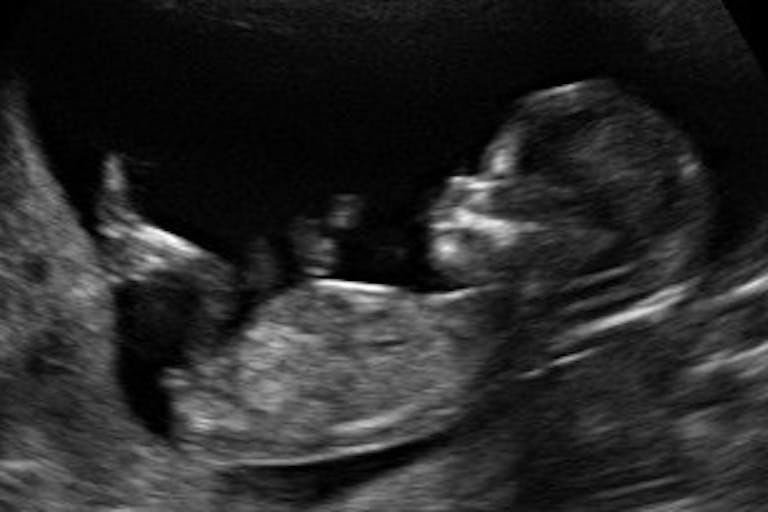
EU Parliament votes in favor of abortion travel fund
Bridget Sielicki
·
Should unborn children be protected from exposure to dangerous chemicals?
A New York Times piece this week highlighted a story out of Wisconsin, where a pregnant woman has been ordered to comply with a 78-day drug treatment program because she told her obstetrician that, before her pregnancy, she had a pill addiction which she overcame before getting pregnant. The ruling comes via Wisconsin legislation passed in 1998 which allows child welfare advocates to protect unborn children who may be placed at risk by their mothers’ drug dependency.
Wisconsin is not alone in its fetal protection policies; Alabama, too, has a law to protect children from chemical endangerment, and in that state the child protection law can be enforced from the moment a child is conceived. In Alabama, a state where methamphetamine production is particularly worrisome, the law has resulted in the arrests of at least 100 mothers whose newborns tested positive for drugs.
The Times piece cited statements from the American Congress of Obstetricians and Gynecologists which point out that women with drug dependencies often avoid prenatal care in order to prevent their doctors from finding out about their addictions and be subsequently being subjected to confinement or a treatment program. But is this reality enough to justify not offering the pre-born the same protections from drug exposure as children who are already born are afforded? Especially considering the nature of prenatal gestation, wherein the health of an unborn child corresponds more with the health of its mother while in utero than it will at any other point in the child’s life. According to the National Library of Medicine:
While in the womb, a fetus grows and develops due to the nourishment from the mother via the placenta. However, along with nutrients, any toxins in the mother’s system may be delivered to the fetus. These toxins often cause damage to the developing fetal organs.
The Times also points out that the child welfare laws that extend protections to the unborn are largely the result of pro-life efforts in the hope that they will establish precedent for more comprehensive personhood laws in the United States. However, the idea of shielding unborn children from prenatal exposure to dangerous chemicals is not at all an entirely pro-life invention. Just to name one example, federal law mandates that women of childbearing age who wish to treat severe acne with the medication isotretinoin (Accutane) not become pregnant during and for one month following isotretinoin treatment. This is because the drug — a retinoid — can cause severe birth defects if a woman becomes pregnant during or immediately after treatment.
Article continues below
Dear Reader,
In 2026, Live Action is heading straight where the battle is fiercest: college campuses.
We have a bold initiative to establish 100 Live Action campus chapters within the next year, and your partnership will make it a success!
Your support today will help train and equip young leaders, bring Live Action’s educational content into academic environments, host on-campus events and debates, and empower students to challenge the pro-abortion status quo with truth and compassion.
Invest in pro-life grassroots outreach and cultural formation with your DOUBLED year-end gift!
In fact, the FDA mandate is so rigid that women must go through an “iPledge” program before and during their treatment, certifying that they are utilizing two methods of birth control with an acceptable efficacy rate (condoms don’t meet the requirements) and are subjected to blood and urine tests during every month of treatment to make sure that they have not become pregnant while on the drug. These mandates even apply to women who are not sexually active.
One organization that has taken a stand against Wisconsin’s established right of the unborn not to be exposed to dangerous chemicals is the National Advocates for Pregnant Women, whose executive director said the following regarding the Wisconsin case:
This is what happens when laws give officials the authority to treat fertilized eggs, embryos and fetuses as if they are already completely separate from the pregnant woman.
Aside from the incredibly shoddy science that went into the creation of that statement, there is also the question of consistency: if “pro-woman” organizations like the National Advocates for Pregnant Women don’t want pre-born children to be protected from dangerous chemicals, why aren’t they also advocating against laws like the FDA’s iPledge program for isotretinoin users?
Live Action News is pro-life news and commentary from a pro-life perspective.
Contact editor@liveaction.org for questions, corrections, or if you are seeking permission to reprint any Live Action News content.
Guest Articles: To submit a guest article to Live Action News, email editor@liveaction.org with an attached Word document of 800-1000 words. Please also attach any photos relevant to your submission if applicable. If your submission is accepted for publication, you will be notified within three weeks. Guest articles are not compensated (see our Open License Agreement). Thank you for your interest in Live Action News!

Bridget Sielicki
·
Issues
Angeline Tan
·
Guest Column
Emily Berning
·
Opinion
Nancy Flanders
·
Opinion
Mark Wiltz
·
Opinion
Mark Wiltz
·
Human Interest
Lauren Enriquez
·
Activism
Lauren Enriquez
·
Activism
Lauren Enriquez
·
Activism
Lauren Enriquez
·
Lauren Enriquez
·